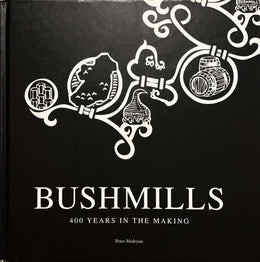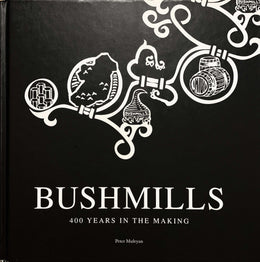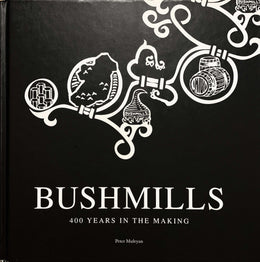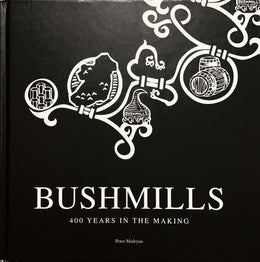Chapter 7: Hunting The Smugglers; “Orkney Stories: A specially commissioned collection by Highland Park”

Orkney folk-history is rich in the tales of smugglers and their triumphs over the excise men. Those who followed this traditional occupation came from all walks of life, and they enjoyed a lucrative trade before the licensing of distilleries reduced demand for their services.
An early summer dawn in the Orkney Islands, with the pinkness just fading from the wide sky, the sea a finely rippled sheet of mother-of pearl. Only a breath of wind. With a rattle of falling ropes, the red main sail collapses into folds, there is a faint splash as the anchor is dropped, and the stout little brig, which has slipped silently into the bay, now rests motion- less. Everything is quiet, no other vessel in sight, the beach deserted. But then there is a movement on shore. Half a mile away, a pony drags a jolting two-wheeled cart down a rough track to the beach. Someone waves from the ship. Presently her longboat is lowered, a derrick and sling are rigged, and with careful slowness, her crew begins to lower a cargo of wooden kegs into the boat.
. . The revenue cutter is tied up at the quay in Kirkwall harbour.
On the heather moor above the town, a thin bluish trail of smoke rises into the air from a sheltered hollow. The wind catches it and spreads it into invisibility. Down in the hollow, a crackling fire burns brightly in a rough stone hearth, and three men stand by the bubbling pot of barley mash. On top, like a metal bird with a squat body and long, stiff beak, is the whisky still. The coil of its copper gut is hidden within its body, but the men's eyes are on the spout, waiting for the first drops of clear liquid to emerge. Stone jars, each in a protective basket of plaited straw, are ready for filling. Up on the ridge, a boy sits with a dog, placed there as look-outs. But there is no real sense of urgency or danger.

. . . The revenue officers are playing cards, behind closed doors.
In their solid grey houses, the Orkney lairds sip claret, smack their lips, and compare vintages. The farmer's wives brew heather ale in their own back-yards, enough for warmth and hospitality through the long winter. Gin from Holland, whisky from the hill, can be got in the many shebeens for a trivial sum. Not a penny from all this production and consumption of alcohol goes to the government.
When I started hunting the smugglers of Orkney, I found it was far from easy. For one thing, they had all been dead for a hundred and fifty years or more. For another, they were not great self publicists. Discretion was their middle name. Memoirs of a Gin-Runner, or The Home Distiller's Handbook, were conspicuously lacking from the library. Nor did Orkney's historians have much to say on the matter.
But I persevered, sifting through old books and records, tapping the still vibrant oral tradition. And bit by bit, a picture emerged, like the drops of whisky from the beak of the still.
Smuggling and illicit distilling were part of the Orkney way of life. Everyone was engaged in it. At the head were the lairds and the merchants. Their power was such that I feel, absurdly, half afraid to name them. Even now, these same names adorn shop-fronts in Kirkwall and Stromness, and fill the Orkney telephone directory. I have an uncomfortable feeling that to list these long dead Eunsons, Traills, Baikies, Stewarts, could still result in a midnight knock on the door, a brief struggle, a heavy splash into the dark waters of the bay.
Two hundred years ago they held all the strings. They were Business, they were Property, they were the Law. They were also Smuggling. They excelled in the Scottish ability of presenting a front of upright and sober respectability, when required. They liked things to run in a smooth and orderly way. Revenue men were paid off regularly, or might even be appointed from the ranks of the smugglers. However, this was not some sort of Mafia society. There were no blood feuds, they did not practice violence for its own sake. As in any other kind of business, especially one which by its nature was under-cover, there was competition and rivalry. Sometimes, operators broke ranks. If they were of the laird class, they were ostracised: not a nice fate on an island. Lesser men might be set upon by thugs. If they persisted, they might be handed over to the press gang: the Royal Navy liked Orkneymen and came regularly to find them. They might be dragged to court on trumped-up charges —anything but smuggling —to face the magistrates, whom they knew full well in other capacities. There was plenty of room in the town jail. And there was always the ultimate threat, of the noose —in the loft of St Magnus Cathedral there still lies the grim old double ladder, which was climbed by the hangman and his victim, together, but only the former climbed down again.
The wonder is that anyone did anything other than drink in Orkney during the 18th century. In Kirkwall there was a drinking place for every dozen or so men. But in fact, visitors tended to comment on the industry and sobriety of the islanders. There is a strong grain of common sense in the Orkney mind. Life should have a balance, there were crops to grow, fish to catch, families must be housed and fed. But Edinburgh was far away, and London much further. The Orcadians did not see why their ancient practices should be abandoned, nor why tax should be paid if it could be avoided with a little ingenuity or bravado. Perhaps that is why in the smuggling stories, the excisemen are outsmarted almost every time. Even when a notable smuggler was caught inflagrante delicto one night with a cart-load of gin, he kept the officers talking and laughing as they walked with him in front of the horse. Meanwhile silent accomplices removed the kegs from behind, and when Kirkwall was reached, the infuriated gaugers found the cart was empty.
After a morning spent among those eighteenth-century Orkneymen, stepping out from the library into the street, I have to stop and blink in the bright light. The Kirkwall of two hundred years ago seems more real to me than that of today. It would be no surprise to stumble into the forcible embrace of the press-gang, or to see a handcart with a discreetly covered cargo being run speedily over the paving-stones. I scan the passers-by for the sly, pious face of Mansie Eunson, who enjoyed playing tricks on the excise-men. A typical Mansie ploy was to let them know through a stool- pigeon that he'd be crossing Wideford Bridge one midnight. They duly crouched in discomfort beneath the arch, and leapt out when they heard horses' hooves. It was Mansie all right, whistling cheerfully. He had made his run hours before, and was now returning with innocent, empty barrels . . . Can these ancestral practices really have disappeared? Walking along the narrow grey street, seeing these familiar names above the shops, I find myself wondering . . . but I push the unworthy thought aside. I've had my head stuck into dusty old documents for too long. Best take a brisk walk down to the sea and let the wind blow the vivid ghosts of the Orkney smugglers away.
Written by Harry Matheson
The text is an excerpt from "Orkney Stories: A specially commissioned collection by Highland Park" (pp. 41 - 44), published 1995 by Matthew Gloag & Son Limited under the commission of Highland Park Single Malt Scotch Whisky.







